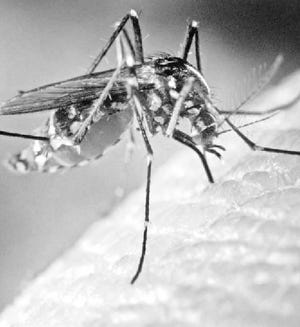Infection
Region’s third West Nile sample detected in Anderson Township.
A mosquito trapped on Doolittle Lane in Anderson Township had the third positive test of West Nile virus identified in the Cincinnati region this summer.
Testing for the virus is routine and agencies such as Hamilton County Public Health set up traps to catch mosquitos and test for the presence of West Nile.
On Monday, the Warren County Health District reported a positive test from a mosquito it collected at Miller Ecological Park in Lebanon, and earlier this month, the Cincinnati Health Department announced it had the region’s first positive test.
West Nile:Second sample detected in the region in Warren County
What you need to know:West Nile virus was detected in Cincinnati area
What is West Nile virus?
According to the Ohio Department of Health, the West Nile virus is an arbovirus (infections caused by a bite) spread by bites from infected mosquitoes.
Mosquitoes become infected when they feed on infected birds and then can spread the virus to humans or other animals through a bite. Most people in Ohio are infected by what’s called the northern house mosquito (Culex Pipiens), a common house mosquito in urban, suburban and rural habitats, according to Ohio State University’s College of Food, Agricultural and Environmental Studies.
The virus was first detected in the United States in New York City in 1999 and spread quickly across the country within a few years, according to Ohio health officials. By 2002, it had spread through 87 of Ohio’s 88 counties. There were an estimated 225 deaths attributed to the West Nile virus in the United States in 2021.
West Nile can cause potentially serious illnesses and is present in many Ohio counties, the health district said.
How to prevent mosquito bites and prevent breeding sites
Local agencies are reminding the public to take some precautions to help prevent bites and and further breeding or spread.
Health officials in Hamilton County will continue to conduct surveillance activities in the neighborhoods and commercial areas where the mosquitoes were collected.
The health department recommends a three-step process called “drain, dunk and protect,” to help reduce the mosquito population and prevent the virus.
Drain
- Look for and drain sources of standing water on your property – litter, tires, buckets, flowerpots, wading pools and similar items that could create standing water and become mosquito breeding sites.
- Frequently change water in bird baths and pet bowls.
- Drain small puddles after heavy rainstorms.
Dunk
- Apply mosquito larvicide, sometimes called mosquito “dunks,” to areas of standing water that cannot be drained. The “dunks” are environmentally safe and won’t harm pets. Purchase them at your local hardware store.
Protect
- Cut your grass and trim shrubbery.
- Make sure screens in windows and doors are tight-fitting and free from defect.
- Wear long sleeves and pants during peak mosquito hours – dawn and dusk.
- Use an EPA-registered insect repellent such as those containing DEET, picaridin or oil of lemon or eucalyptus. Always follow the directions on the package.
The department says 70% to 80% of people who become infected with West Nile virus won’t show any symptoms.

